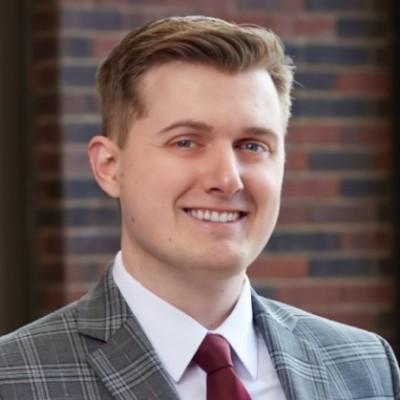
Algorithmic Altruism in Autonomous Multi-Agent Systems
Brooks Butler
Postdoctoral Fellow
UC Irvine
Time: 11 am - 12 pm PT
Date: 6 October 2025
Location: Engineering Sciences Building 2003, UC Santa Barbara campus.
Abstract:
Autonomous systems are increasingly deployed in settings where safety, resilience, and coordination are critical. Whether supporting disaster response, securing contested environments, or conducting surveillance across wide areas, teams of robots and software agents must often succeed under pressure and uncertainty. In these settings, multi-agent systems excel by providing natural redundancy and resilience, but fully realizing these advantages requires agents to look beyond individual performance and contribute to the effectiveness of the group as a whole. Drawing inspiration from biology, we introduce the concept of algorithmic altruism: a way for agents to deliberately and strategically take on costs to benefit others. By adapting Hamilton’s rule from ecology, we show how altruistic decision- making can be formalized and embedded into the behavior of autonomous agents. This allows teams to share resources dynamically, protect vulnerable members, and adjust their actions in ways that improve overall mission success. Together, these results establish algorithmic altruism as a design philosophy that produces autonomous systems more capable of adapting to unforeseen challenges, maintaining safety in complex environments, and coordinating effectively when it matters most.
Dr. Brooks Butler is a Postdoctoral Fellow at the University of California, Irvine, where he is a participant in the Intelligence Community Postdoctoral Research Fellowship Program administered by Oak Ridge Institute for Science and Education (ORISE) through an interagency agreement between the U.S. Department of Energy (DOE), the Office of the Director of National Intelligence (ODNI), and the Department of Homeland Security (DHS). His research centers on advancing control theory for multi-agent robotic and cyber-physical systems, with a focus on agent versus system level safety, security, and resilience; altruistic control frameworks for autonomous systems; and the implications of coupled dynamics in interacting subsystems. He received his Ph.D. in Electrical and Computer Engineering from Purdue University in 2024. He received his M.S. in Computer Science and his B.S. in Applied Physics from Brigham Young University in 2020 and 2019, respectively.
Host: Dr. Joao Hespana, UCSB Electrical and Computer Engineering